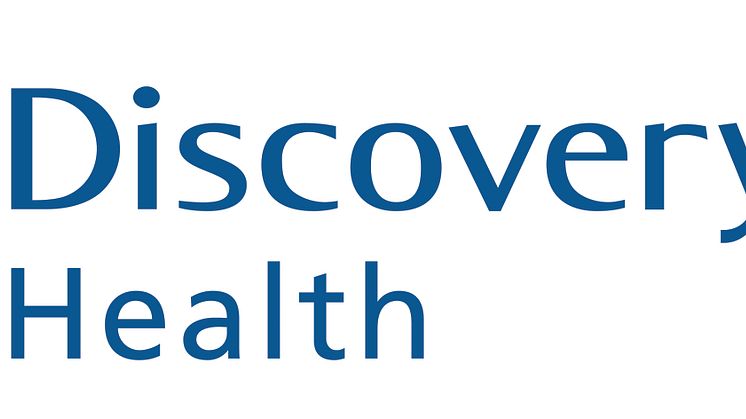
Press release -
Discovery Health response: Allied and Therapeutic Benefit for 2012
Discovery Health response: Allied and Therapeutic Benefit for 2012
Managing the “abuse factor”
Member X from Johannesburg spent over R200 000 on allied health benefits last year. The principal member and her youngest child visited their physiotherapist more than 200 times for muscular pain, and her eldest child saw an occupational therapist 156 times for hand-grip function and co-ordination skills. While the reasons for these massive numbers of consultations seem hard to justify clinically, all claims were funded by the Discovery Health Medical Scheme and by implication, its members.
This example and the current discussion on Facebook regarding the change in the Allied and Therapeutic Benefit highlights one of the key challenges medical schemes face: that of achieving the right balance between providing access to excellent, clinically appropriate healthcare benefits, and curtailing abuse of medical scheme benefits resulting in the majority of members paying inappropriately for a small minority. This challenge forms part of the broader “abuse factor” which medical schemes need to address.
Discovery Health’s approach has always been to provide unlimited and comprehensive benefits when members have the greatest need. High-cost events and conditions such as hospitalisation, cancer treatment and chronic diseases can be financially catastrophic for families without adequate cover. We routinely fund hospitalisation events costing between R500 000 and R1 million, with the average cost for a premature baby close to R700 000. Routine cancer therapies now cost between R200 000 and R400 000. Our priority is to deliver comprehensive cover for these treatments; we can achieve this only by containing costs and removing abuse.
We have identified an increasing trend towards the abuse of certain day-to-day benefits. While these services are often used appropriately for serious clinical conditions, these benefits are increasingly being exploited for services that are not clinically justified. Examples of this are the use of biokineticists as personal trainers, occupational therapy to improve a child’s “pencil grip” and ongoing physiotherapy for stiffness. The long-term impact of such practices is costly and ethically unacceptable.
Mechanisms that a medical scheme has at its disposal to address this abuse would typically be managed care protocols, such as the pre-authorisation of every episode of care with a health professional, or limits set at a level adequate and appropriate for the majority of members.
Discovery Health has conducted extensive research and analysis in deciding how to manage abuse in this area, and has adopted an approach addressing the “abuse factor” but still maintaining benefits for members at the most comprehensive level.
The new benefit design focuses on day-to-day benefits, where abuse has been the highest (in-hospital and Prescribed Minimum Benefits are unlimited and covered from risk benefits). A high limit caters for all members where benefits are appropriately utilised and approximately 98% of members will be fully covered. For those needing additional cover above these limits, an Extender Benefit automatically provides unlimited coverage for serious clinical conditions requiring extensive treatment. The benefit is flexible – any member can apply for these unlimited benefits if they believe they are medically required. The restructured benefit also enhances cover in key areas where we believe benefits were previously not sufficient: home nursing benefits have been increased and members needing psychiatry will now have unlimited cover.
The net result is improved and unlimited benefits for those who most need them, no impact on members who spend within the limits, and the effective management of abuse to the benefit of all members. We understand that a small number of members who were accustomed to unlimited allied health benefits – and their treatment providers – could be impacted by this change, and we welcome engagement with them to understand and address their concerns without compromising on the critical objective of managing abuse.
Detailed explanation of Discovery Health’s Allied and Therapeutic Benefit for 2012
- The benefit changes apply only to members on Executive, Comprehensive and Priority Plans.
- The Allied and Therapeutic Benefit limit has been instituted to curb areas of abuse, such as members using biokineticists as personal trainers and the emergence of irregular therapy practices at schools. Rather than set a sub-limit for each area of care, provision has been made for a basket of care, subject to an overall limit, that members can allocate to one or more area as they need cover.
- The Allied and Therapeutic Benefit covers the vast majority of our members in full, since we have set the benefit limit to cater for more than 98% of our members, based on current benefit usage patterns.
- Certain benefits were anomalous and have also been restructured as part of this change. For example, psychiatry cover is now unlimited, as is the case with other specialist healthcare services. Previously, psychiatry was grouped with psychology benefits as part of the Mental Illness Benefit, with a lower limit than that of the new Allied and Therapeutic Benefit.
- The Allied and Therapeutic Benefit offers better cover to members who need psychiatry and home nursing (which were previously subject to low limits), as well as members with severe clinical conditions who may need cover for various treatments over an extended period. In particular, members on the Executive and Comprehensive Plans with severe conditions enjoy unlimited cover through the Allied and Therapeutic Extender Benefit. This extender will be activated automatically if the member suffers from a condition specified on our list and for which he or she is registered under the Chronic Illness Benefit.
This ensures that members with the greatest medical need have full access to the healthcare that they need.
- The vast majority of our members claim for hospitalisation, chronic and acute medication, specialists, GPs and chemotherapy. The medical services that fall under the Allied and Therapeutic Benefit make up a very small proportion of our members' total claims. We expect that less than 1.5% of members of impacted plans (equivalent to less than 0.5% of total scheme members) will reach the revised limit. A significant proportion of these affected members will have access to the unlimited Extender Benefit. We have designed this benefit with the intention that very few members should be impacted by it, while simultaneously curtailing the abuse of health plan benefits.
- Members on Executive and Comprehensive Plans who have certain predefined conditions like cerebral palsy and quadriplegia will have access to unlimited ongoing therapy from physiotherapists, biokineticists, speech and hearing therapists, and psychologists through the Allied and Therapeutic Extender Benefit.
- It is also important to note that Discovery Health’s mental illness, and allied and therapeutic benefits are the most comprehensive in the industry, significantly in excess of the Prescribed Minimum Benefits required by the Medical Schemes Act.
Dr Jonathan Broomberg
Chief Executive Officer
Discovery Health
Dr Jonathan Broomberg, CEO of Discovery Health was interviewed on Talk Radio 702 recently regarding the Allied and Therapeutic Benefit changes for 2012. Listen to the interview here:


